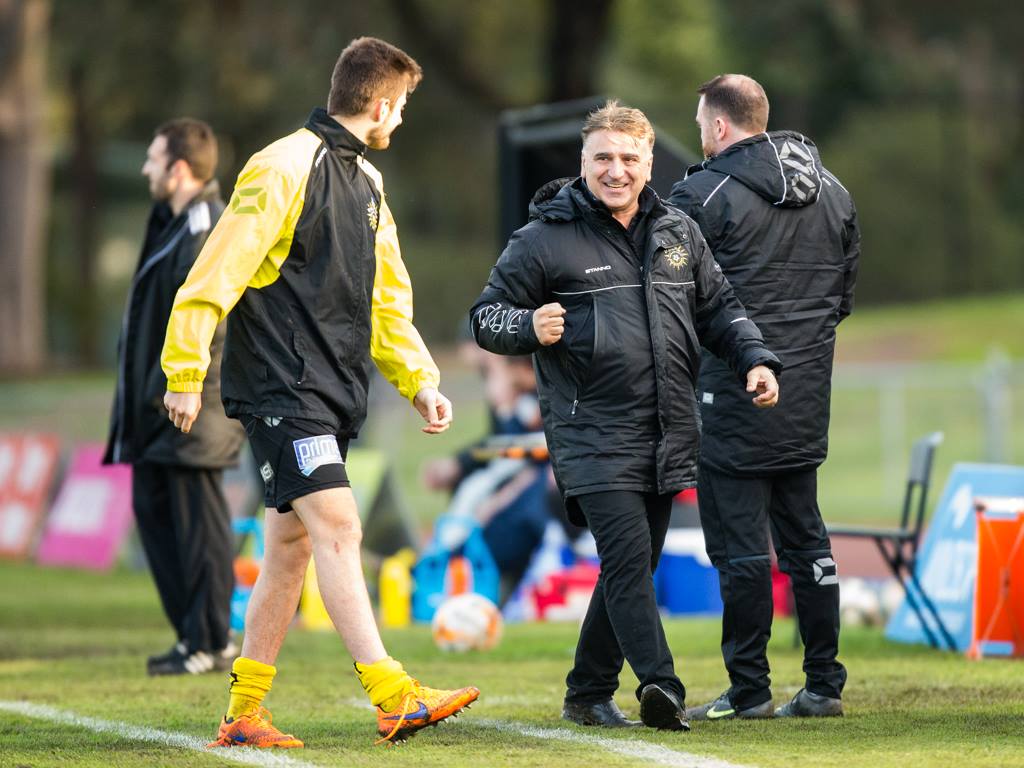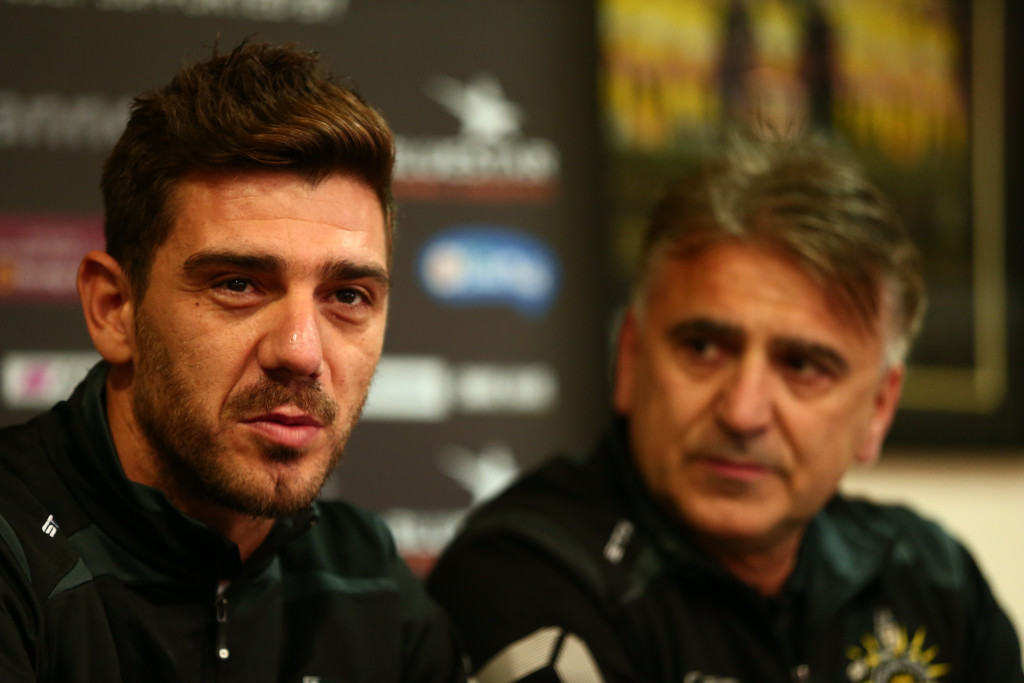Sometimes, the more things change, the more they stay the same.
Heidelberg United’s Olympic Village – still retaining much of its historical charm since opening for the 1956 Melbourne Olympics -will once more resemble the club’s halcyon days on the national stage as Melbourne City visits for Tuesday’s FFA Cup clash.
During the NSL era, the club formed by migrants from the region of Macedonia in Northern Greece hosted some of the nation’s finest footballers, with the likes of Charlie Yankos, Gary Cole, Jimmy Rooney, Theo Selemidis and John Anastasiadis and others calling Heidelberg home during their distinguished careers.
While many faces have come and gone in the last few decades following the Bergers’ demotion into the Victorian state league, one man who has stood the test of time is the club’s passionate head coach, George Katsakis.
The beginning
The 49-year-old was born in Melbourne to migrants from the Northern Greek city of Florina and took a liking to the round ball game early.
“As a junior you set yourself a destination of where you want to start playing and Heidelberg United was my club of choice,” Katsakis says.
“I began play football there back in 1972 where I was one of the first juniors to play for the club, rising through the youth ranks before representing the club in the NSL Youth League before moving into the senior side.”
Katsakis was elevated into the senior squad in the 1985 season, and after a stellar campaign won the National Soccer League Under-21 Player of the Year and earned a call-up to the Young Socceroos squad.
However, a leg break soon after prevented the promising junior from fulfilling his talent, prematurely retiring in his 20s.
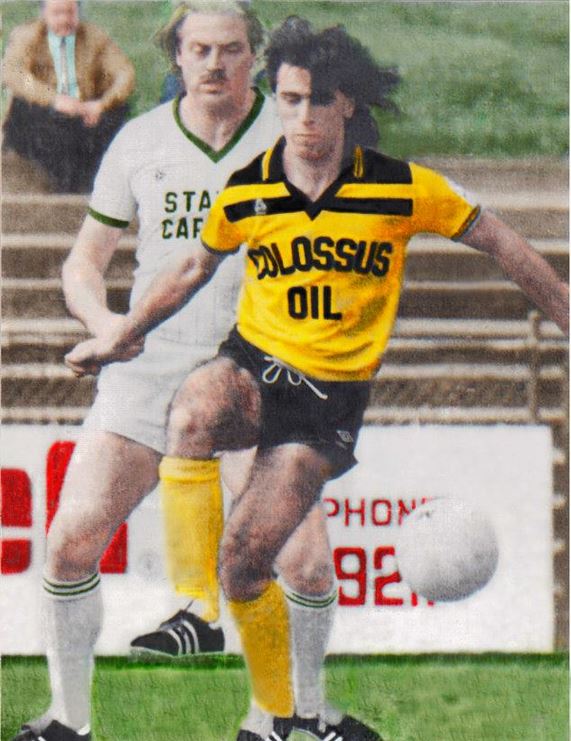
First coaching foray
Katsakis promptly moved into coaching and occupied several positions within the club, becoming an assistant coach as the club were forced out of the National Soccer League in 1995 by Soccer Australia.
While Heidelberg adjusted to rigours of state league football, Katsakis’ coaching development took him to the junior set-ups of NSL sides South Melbourne and Carlton, before embarking on his senior coaching career at Brunswick.
He then enhanced his reputation through successive promotions at Northcote City and Kingston City, with the latter stint seeing Katsakis steer a side featuring Michael Curcija, Joe Spiteri, Marcus Stergiopoulos and Michael Turnbull into the finals in their first season in the top flight.
His coaching exploits caught the attention of several clubs, but there was only one team that Katsakis set his sights on managing.
Back to Heidelberg
“Heidelberg United is very close to me and something which I haven’t parted with all through my life, albeit I’ve spent some years away managing a few different clubs through my coaching development,” Katsakis says.
Given his affection for the Bergers, and with the club struggling after some poor early season form under Kon Pappas and then Doug Hodgson, the timing was right for Katsakis to take charge of his beloved club in May 2007.
“I can safely that Heidelberg has been my club at heart and being coach of such a proud club you tend to give it that little bit extra knowing that you’ve got everyone behind you,” he says.
Unaffected by the club’s historical financial troubles, Katsakis led the Warriors to the finals in each of his four first full seasons in charge, though was unable to win any silverware despite impressive results.
“The financial troubles which plagued the club in the last decade began around 2007 when I was appointed head coach, and I went in and tried to make the relative changes and to a degree we were heading in the right direction,” he says.
“But the history of the club and the path it was going on was not the best, as it had lost a lot of supporters and the momentum they had built up over the years had stalled, with the club deteriorating in stature.
“By 2012 I had been at the club for five years and we’d played finals in each of those years I’d coached, with things looking quite rosy.
“However, due to a health condition I had to take the year off and Andrew Vlahos took over as the club embarking on a more youthful policy which didn’t reap rewards.”
Five points from their opening 12 games saw the club struggling at the wrong end of the table, with Vlahos making way for Ken Murphy who was then replaced by the returning Katsakis in July 2012.
Despite improved performances, the club was relegated into State League One after just two wins all season, amid a cloud of financial uncertainty.
After being relegated for the third time since returning to the state leagues in 1996, the board worked hard behind the scenes to ensure the implementation of a new financial model to keep the club in good shape for the future.
“I came back mid-season with the club dead last and tried to keep us up, but the season was long gone by that stage,” he says.
“The following year we had to make all the changes and brought in a new group of people into the football club who were good committee people, influential wealthy people who had a more business-orientated outlook and started changing the direction of the club.”
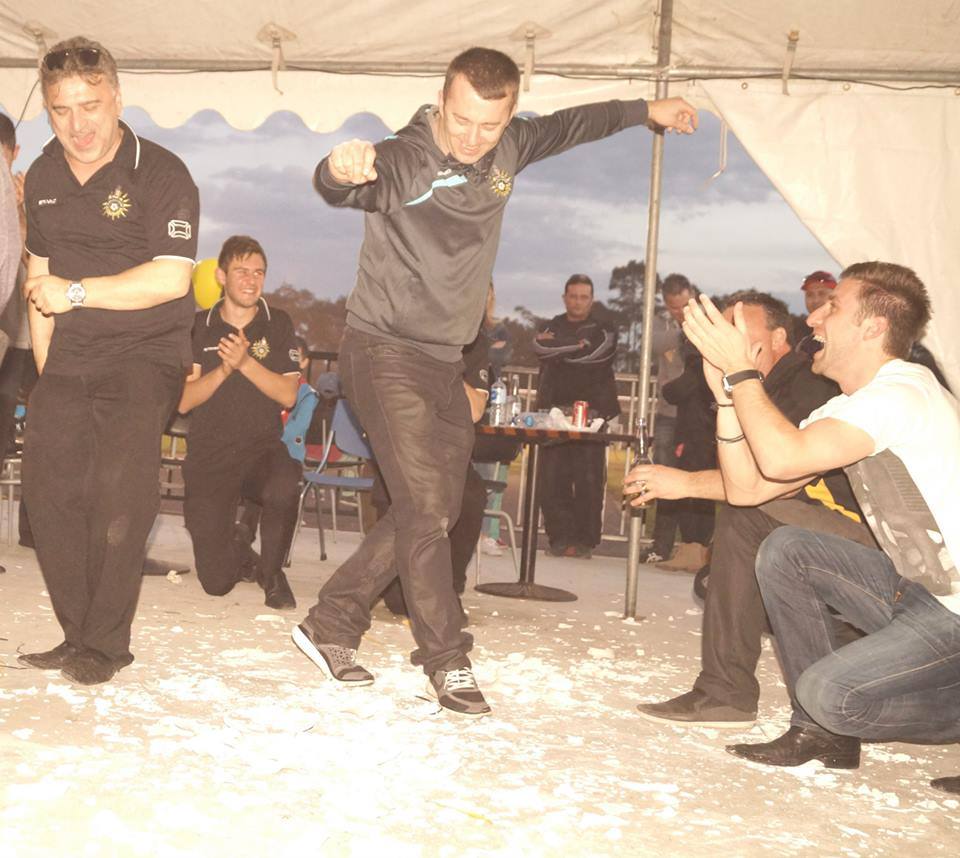
New direction
On the pitch, Katsakis aimed to immediately promote the Bergers back into the top flight with the addition of several new faces, as unknown English striker Dan Heffernan and club stalwart Nick Marinos did the damage to help Heidelberg conquer all before them in State League One.
Katsakis, along with his long-time assistant and fellow Heidelberg legend Jeff Olver, ensured the transition back into the top flight following the implementation of the NPL was a smooth one, building one the most consistent and entertaining sides in the competition.
“From there on in on-field success followed, with 2013 being a Championship winning year as we got promoted straight back up whilst also getting our NPL application approved,” he says.
“The last two years in the NPL have been magnificent having finished third on both occasions while also finding ourselves in the last eight of the FFA Cup.”
2016 FFA Cup
“Once the concept of the FFA Cup came into being, we set ourselves the target of trying to get to the highest possible stage of the tournament and that is something we have managed to do,” Katsakis says.
“Our initial target was to make it to the Round of 32 before setting sights on the Round of 16 which has now eventuated into the Quarter-Finals of the completion and is currently set at reaching the last four in order to put the club back on the map.”
The club’s recent success in the FFA Cup has generated plenty of interest and the club capitalised on the increased exposure by luring Greek legend Kostas Katsouranis to Olympic Village for a guest appearance against Melbourne City, leaving Katsakis elated by the club’s ability to secure such a prized capture.
“The Katsouranis signing to a lesser extent we took out from the likes of Sydney FC bringing in Alessandro Del Piero and the magnitude of such a player coming out to Heidelberg is quite significant,” Katsakis said.
“It doesn’t happen very often, but the coup is one which the club is very proud of, given it has captured the imagination and made headlines across the globe.
“Not many able to believe that a player of that calibre is playing out at Olympic Village for a club like Heidelberg on Tuesday,” he adds.
“It’s a massive move for the club and one which has showing the footballing world that the club has changed and is turning into another direction. Hopefully we can get a result and make him available for another game for the club with that being something we have to assess after Tuesday night’s clash.”
Looking ahead, the 49-year-old is determined to ensure this year’s FFA Cup adventure is not a one-off, hoping the momentum and interest is replicated in years to come.
“We’ve got ourselves into that position and the club will naturally reap the financial rewards from it, with the interest generated from it being amazing,” he says.
“It’s something we need to capitalise from it to ensure we make the last 32 of the competition every season from here on in as it not only puts the club back in the spotlight but also generates financial gains from it.”
The future
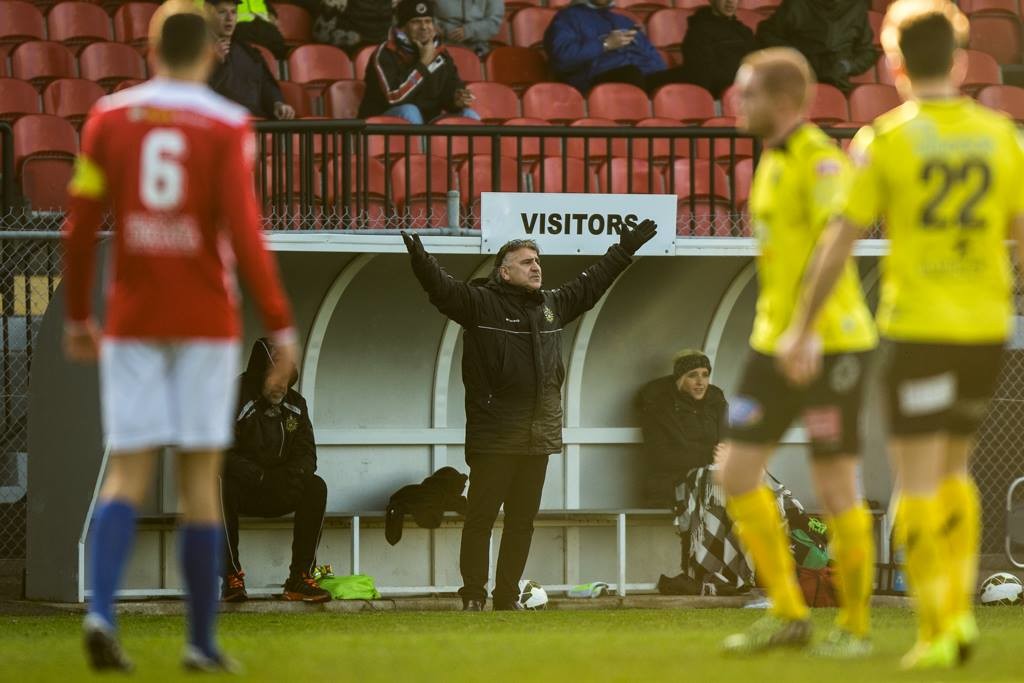
Despite their fall from the national football scene in the 1990s, Katsakis is determined to help the club seize the moment as the proud crowd returns to the national spotlight.
In the long-term, he believes the club is in the right hands as they embark on an exciting new era in its history, primed to pounce if an opportunity to play at a higher level presents itself.
“History is something we can’t change and there is a reason for everything, with the likes of Heidelberg always remaining big clubs, irrespective of what changes transpired over the years,” he says.
“For us to be back on the national level adds that extra bit of enthusiasm to it for us as it puts us up there with the elite of Australian football.”
“We’re heading into a totally new direction with the club now being well managed with some healthy finances being poured in.
“Our overall goal being some form of B-League if it comes around, making every challenge to make it a reality.
“If an an A-League position ever becomes available, it’s something they will seriously consider knowing the now we’ve got a successful financial model which is also well structured and allows us to move into that direction.”
Given the experience, quality and hunger within the squad, many are not ruling the Warriors out of causing a monumental upset on Tuesday night against their more fancied neighbours from up the road, with Melbourne City’s Bundoora base less than two kilometres away from Olympic Village.
If that is to eventuate, Heidelberg will need to call upon the spirit of Alexander the Great, the club’s symbolic icon who was the King of the Ancient Kingdom of Macedonia in Northern Greece. And if there is anyone who best encapsulates that spirit, it is the passionate Katsakis, who has lived and breathed Heidelberg United nearly all his life.

